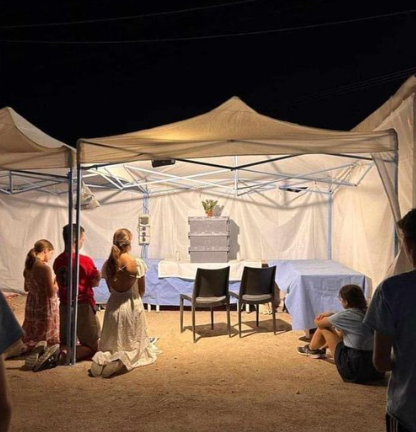Father John Zushlsdorf has a post this morning writing about the Introit and Offertory. The Introit is from the Book of Esther and the Offertory Antiphon (there is also one in the Novus Ordo) is from Job.
From Father Z:
You know the story of Esther during the Babylonian Exile. Wicked Haman plotted to get the King to kill all the Jews. Esther foiled his plan and instead, the Jews were able to slay their enemies.
You know the story of Job. He was a righteous man whom Satan tormented with God’s permission to test and strengthen him. He remained faithful in extreme misery and loss. Eventually, Job was rewarded by God with an even better condition than he had before.
The figures of Esther and Job invest our Sunday Mass with their presence. The Introit Antiphon is from Esther and the Offertory Antiphon is from Job. There is a message embedded in the chants: things can go sideways very fast and mortal peril can arise. The agents of Satan and even Satan himself are at work. We must persevere, for only God is our salvation. Only He can save us, but we, like Ester and especially Job, must do our part both to defend ourselves from the Enemy and then also go on the offensive with prayer: “The Lord gave, and the Lord has taken away; blessed be the name of the Lord.”
I admit to not having read this scripture. I read it this morning about Esther and Haman.
Esther 7
New Revised Standard Version, Anglicised Catholic Edition
7 1 So the king and Haman went in to feast with Queen Esther. 2 On the second day, as they were drinking wine, the king again said to Esther, ‘What is your petition, Queen Esther? It shall be granted you. And what is your request? Even to the half of my kingdom, it shall be fulfilled.’ 3 Then Queen Esther answered, ‘If I have won your favour, O king, and if it pleases the king, let my life be given me—that is my petition—and the lives of my people—that is my request. 4 For we have been sold, I and my people, to be destroyed, to be killed, and to be annihilated. If we had been sold merely as slaves, men and women, I would have held my peace; but no enemy can compensate for this damage to the king.’[a] 5 Then King Ahasuerus said to Queen Esther, ‘Who is he, and where is he, who has presumed to do this?’ 6 Esther said, ‘A foe and enemy, this wicked Haman!’ Then Haman was terrified before the king and the queen. 7 The king rose from the feast in wrath and went into the palace garden, but Haman stayed to beg his life from Queen Esther, for he saw that the king had determined to destroy him. 8 When the king returned from the palace garden to the banquet hall, Haman had thrown himself on the couch where Esther was reclining; and the king said, ‘Will he even assault the queen in my presence, in my own house?’ As the words left the mouth of the king, they covered Haman’s face. 9 Then Harbona, one of the eunuchs in attendance on the king, said, ‘Look, the very gallows that Haman has prepared for Mordecai, whose word saved the king, stands at Haman’s house, fifty cubits high.’ And the king said, ‘Hang him on that.’ 10 So they hanged Haman on the gallows that he had prepared for Mordecai. Then the anger of the king abated.
Hamas, I mean, Haman, was hanged.




















